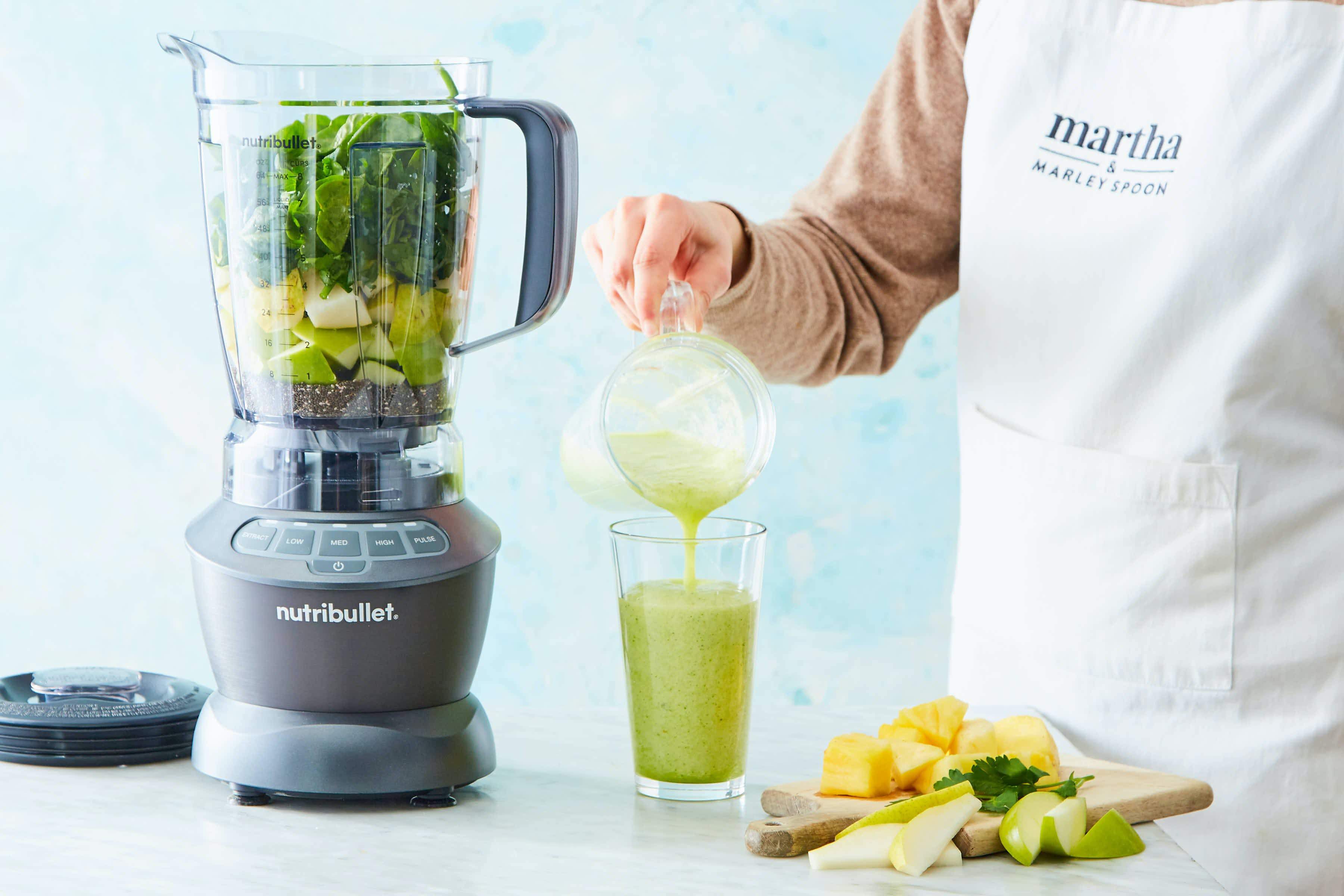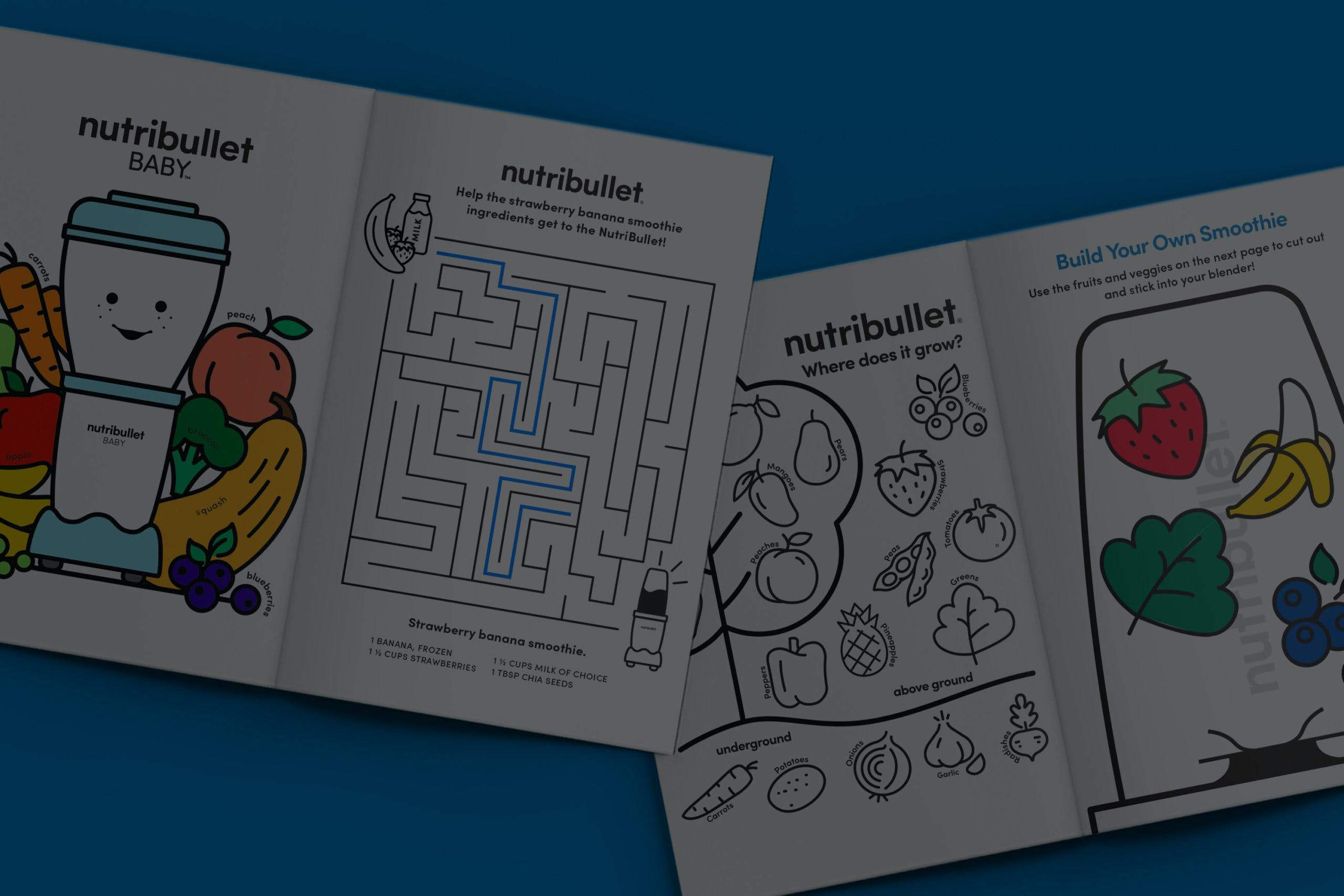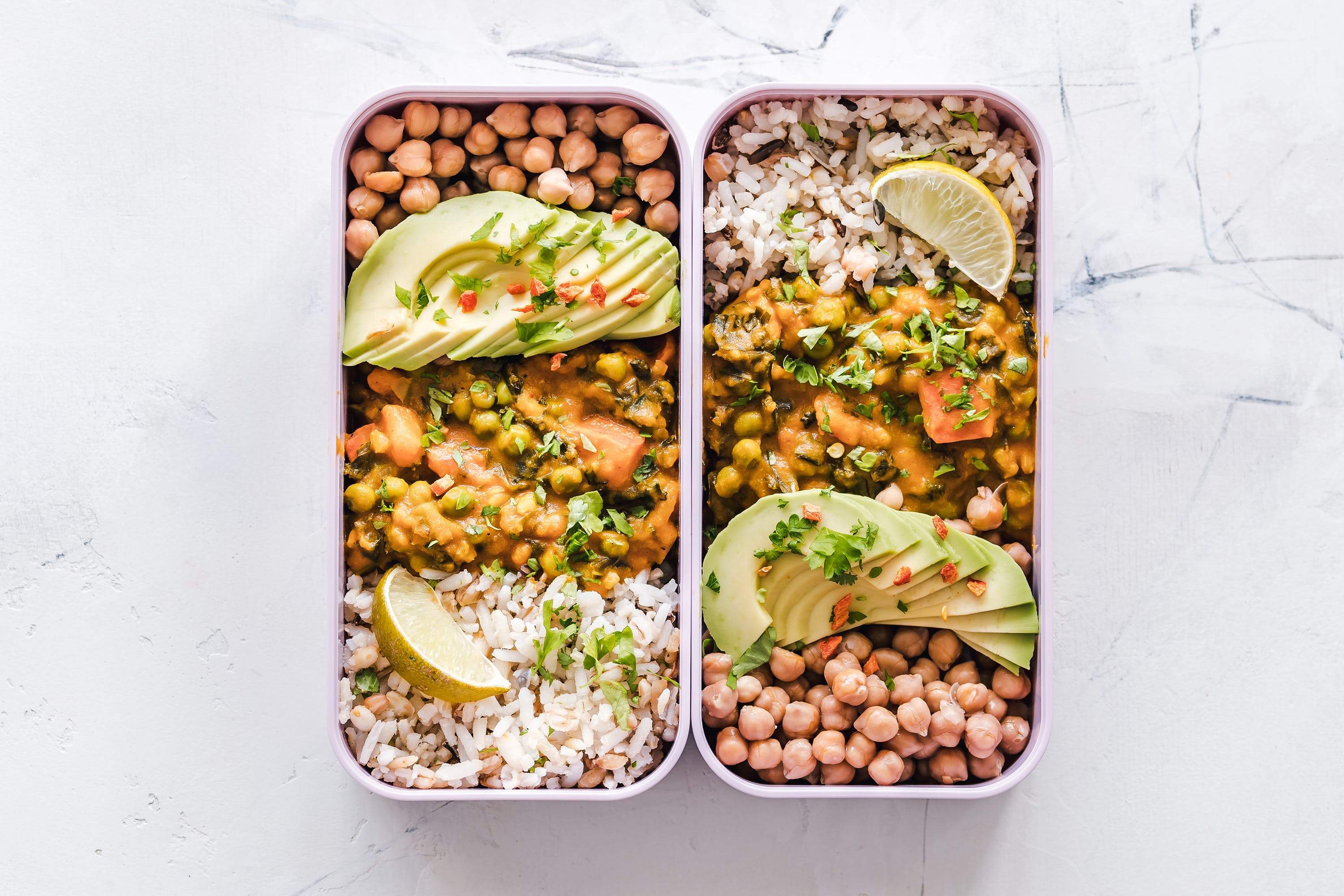There are a lot of misconceptions about smoothies. “They’re healthy.” “They’re high in sugar.” “They’re a meal substitute.” Some of these misconceptions are true, some are partially or occasionally true, and some are patently false. Untangling these misconceptions is the challenge.
The easiest way to do that is to follow the yellow brick road of ingredients. Mary Morawetz, the on-site certified nutritionist for Martha Stewart’s meal kit, Martha & Marley Spoon, says that while people often associate smoothies with sugar bombs and excess calories, “a balanced smoothie with thoughtfully chosen ingredients can be an excellent addition to [a healthy] diet.”
“Choosing fruits wisely, including veggies for balance, and skipping store-bought juices can make a big difference,” she says. Her favorite ingredients include plant-based proteins, like hemp, and healthy fats like nuts and chia.
Lindsay Lombardi, a Philadelphia-based fitness nutrition specialist who designs holistic wellness programs for her client, agrees: “Smoothies are a great way to get functional with your daily meal planning, meaning, you can fill them with nutrients you may be missing.”
“Honey,” says Lombardi, “can help with immunity or allergies; dates can be used as a low-glycemic sweetener; hemp-hearts can provide a nice serving of anti-inflammatory omega-3s.”
With this in mind, let’s look at five smart smoothie add-ins and their health benefits.
Dates
“Smoothies made with concentrated fruit and added sweeteners do more harm than good,” says Morawetz. Instead, she recommends dates as a healthy swap. She cites an article in the Critical Reviews in Food Science and Nutrition to support her claim that naturally sweet dates are preferable to their manufactured counterparts. “[Dates are] full of dietary fiber, specifically the insoluble kind that supports regularity, and are loaded with essential vitamins and minerals like selenium, copper, potassium, magnesium, B-complex vitamins, and vitamin C.”
Better still, US News reports that Medjool dates are entirely fat and cholesterol-free. One pitted Medjool date clocks in at just 66 calories and 18 grams of carbs.
The recommendation here? Instead of using maple syrup, agave, or actual sugar to sweeten your smoothie, add one date per serving.
Hemp Hearts
First things first: Hemp seeds do not contain THC. While they form the edible part of the hemp plant, they do not contain the active drug found in hemp leaves.
Rather, hemp hearts are the little brown seeds with big-time health benefits. A mere two tablespoons of hemp seeds provide two grams of fiber, five grams of protein, 300mg of potassium, 15 percent of your vitamin A requirement, and 25 percent of your daily iron needs.
If all that sounds like a bunch of health guru jargon, here’s the above in layman’s terms. Hemp seeds are an exceptional source of plant-based protein because they are complete proteins. This means that they contain all of the essential amino acids your body needs. They’re especially rich in healthy fats, like omega-3, omega-6, and linoleic acids, which fight inflammation, protect your heart and immune system and have been shown to support cognition and heart health – of particular relevance as we age.
Honey
Honey is a rock star among antioxidants and bioactive plant compounds. What does that mean? It means that honey is rich in flavonoids and polyphenols (micronutrients acquired from plant-based foods).
Well-known for their antioxidants and anti-inflammatory effects on the body, these molecules protect against heart disease and stroke by dilating the heart’s arteries and preventing the formation of blood clots. They also strengthen respiratory and gastrointestinal health and have been linked to reduced risks for certain types of cancer and improved eye health.
Nutritionally speaking, one tablespoon of honey contains 54 calories and 17 grams of sugar, including fructose, sucrose, glucose, and maltose. It contains next to no fiber, fat, or protein.
A study of 55 patients compared honey to table sugar and found that honey caused a 5.8 percent reduction in “bad” LDL cholesterol, a 3.3 percent increase in “good” HDL cholesterol, and a modest 1.3 percent in overall weight loss. However, there is one caveat for honey’s endorsement as a natural sweetener. Some studies have found that, while honey is slightly better than refined sugar, it can increase blood sugar levels among diabetics. Therefore, those who are managing their blood sugar levels should consume honey with caution.
Beet Powder
We all know what beets are, but beet powder may be new for some. Let’s start with a definition. Beet powder is a supplement made from beets that have been dehydrated to form crystals then crushed in a powder.
Beet powder retains all of the protective nutrients of ripe beets. That means that none of the fiber, vitamins, and minerals required for vital life processes are lost in the drying and crushing processes. This is good news for plant-averse eaters. The dietary fiber, calcium, iron, potassium, folate, manganese, and nitrate – compounds that improve blood flow and lower blood pressure – found in ripe beets are all present in beet powder.
This is good news, says Lombardi, for plant-averse eaters who “find it challenging to consume seven-plus servings of veggies and fruits per day.” Sneak beet powder into your smoothie and tick one serving of veggies off your daily intake list.
Ginger
A beloved natural remedy for nausea and indigestion, ginger is widely regarded for its anti-bacterial, anti-inflammatory, and antioxidant properties. This is the likely reason, according to Morawetz, for its popularity among pregnant women and those recovering from illness.
Ginger’s antioxidant properties help reduce various types of oxidative stress, a condition that occurs when toxic free radicals build up in the body. When they’re not eliminated as they should be, free radicals cause cell damage that can lead to a number of diseases, including cancer. Dietary antioxidants, like ginger, support the body in eliminating free radicals.
So, what’s the takeaway? In short, it’s all about the ingredients. “Smoothies are a great way to meet your nutritional intake needs,” notes Morawetz. “For picky eaters, [smoothies are] a vehicle for sneaking in an extra serving of veggies. For athletes, they act as an excellent pre or post-workout source of complex carbohydrates, protein, and electrolytes. For people who are always on the move, they are a nutritious option for a portable meal or snack.”
Lombardi agrees, adding that you can overdo it on sugary fruits or find “protein-rich” blends; most recipes should contain well-rounded ingredients and macronutrients.
The key is knowing which ingredients to look for and ensuring you make your smoothies with them (versus their sugary counterparts.)
Nutritional information
Recipe: Creamy Green Strawberry Dream Serving in this recipe:1
- Calories: 236.6
- Total Fat: 3.6 g 5.5%
- Saturated Fat: 0.4 g 1.9%
- Cholesterol: 0 mg 0%
- Sodium: 358.7 mg 14.9%
- Total Carbs: 45.7 g 15.2%
- Dietary Fiber: 9.9 g 39.4%
- Sugar: 22.1 g
- Protein: 8.1 g 16.2%
- Vitamin A: 481.9% Vitamin C: 244.1%
- Calcium: 68.5% Iron: 26.1%
* Percent Daily Values are based on a 2,000 calorie diet. Your daily values may be higher or lower depending on your calorie needs.











